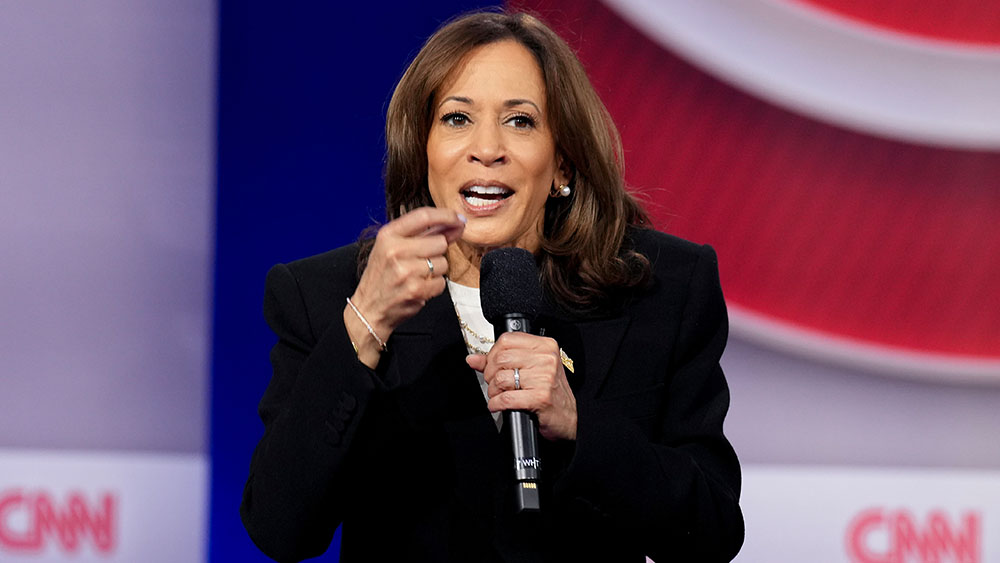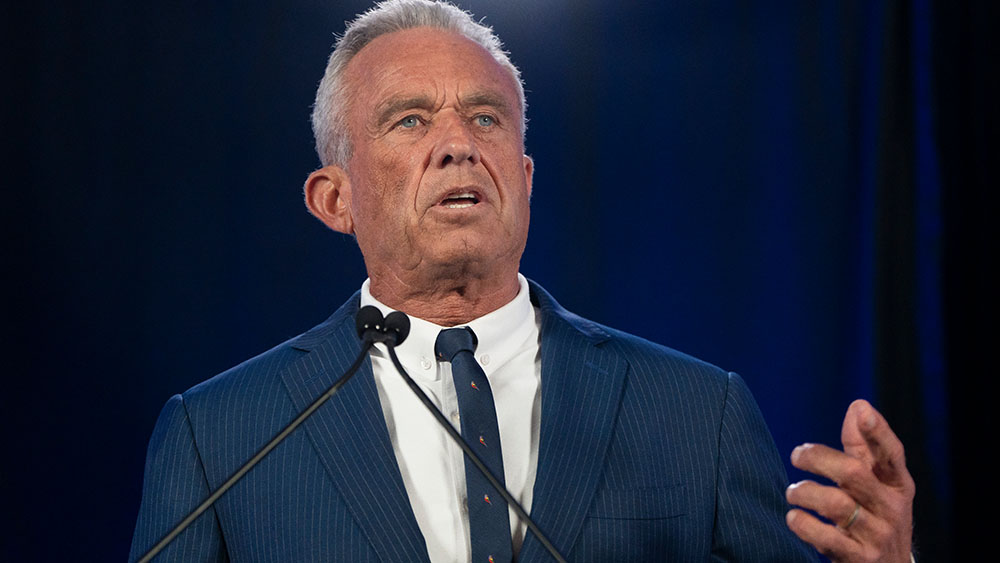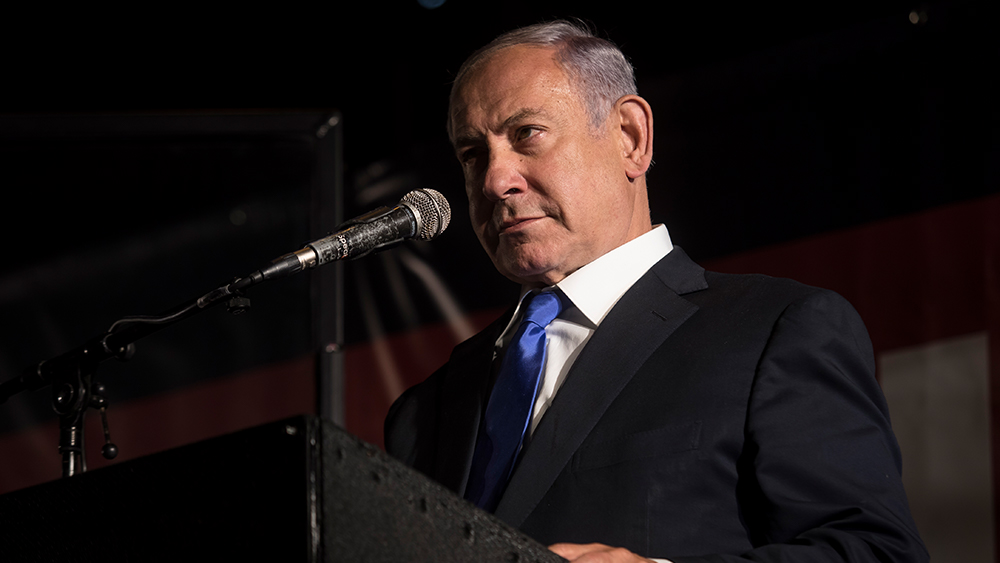CBS under fire for editing Kamala Harris's "60 Minutes" interview, FCC investigates alleged news distortion
By isabelle // 2025-02-09
Tweet
Share
Copy

- CBS’s 60 Minutes is accused of heavily editing former Vice President Kamala Harris’s interview to make her appear more coherent and presidential.
- The FCC is investigating whether CBS’s editing practices constitute “news distortion,” potentially impacting CBS and Paramount.
- Unedited transcripts reveal significant edits, including reducing a 179-word rambling answer to 20 words, sparking criticism of deceptive practices.
- Former President Trump filed a $10 billion lawsuit against CBS, accusing the network of election interference and demanding it lose its broadcasting licenses.
- The FCC’s investigation and public backlash highlight concerns about media bias and the need for accountability in journalism.
A pattern of deceptive editing
The discrepancies first came to light when CBS aired a promo for the interview on Face the Nation, featuring Harris struggling to articulate her thoughts on Israeli Prime Minister Benjamin Netanyahu. Yet, when the full interview aired on 60 Minutes, her answers were noticeably shorter and more polished. A CBS source admitted to the New York Post that the edits did Harris “a lot of favors and makes her seem more succinct.” In one particularly glaring example, Harris’s original response to a question about the Israel-Hamas war spanned 140 words, filled with meandering reflections and repetitive phrases. The broadcast version, however, was trimmed to a tidy 56 words, omitting her lengthy digressions. Critics argue that such editing misrepresents Harris’s actual communication skills, potentially influencing public perception ahead of the 2024 election.Trump’s outrage and legal action
Former President Trump wasted no time condemning CBS, calling the network’s actions “deceitful” and “election-changing.” In a fiery post on Truth Social, Trump declared, “CBS and 60 Minutes defrauded the public by doing something which has never, to this extent, been seen before.” He accused the network of intentionally distorting the news to benefit Harris and demanded that CBS lose its broadcasting licenses. Trump’s $10 billion lawsuit against CBS alleges that the network engaged in “news distortion” to influence the election. While CBS has denied any wrongdoing, the FCC’s investigation could complicate matters for the network, particularly as it seeks regulatory approval for Paramount's $8 billion merger with Skydance.FCC steps in amid public backlash
FCC Chairman Brendan Carr, a Trump appointee, has taken a firm stance on the issue, releasing the unedited transcript and video to the public. “Transparency here is important,” Carr said in a statement. “The FCC’s review will continue, and we look forward to the public’s feedback.” The agency has opened a docket to investigate whether CBS violated rules against intentional news distortion, a move that could set a precedent for media accountability. While CBS maintains that its editing was standard practice for “time, space, or clarity,” critics argue that the network crossed a line by selectively presenting Harris in a more favorable light. Catherine Herridge, a former CBS News investigative reporter, criticized the network on social media, stating, “@60Minutes did then-VP Harris a favor in the edit room.” The controversy underscores growing concerns about media bias and the lengths to which some outlets will go to shape public opinion. As the FCC investigates and Trump’s lawsuit moves forward, the American public is left to grapple with the implications of such deceptive practices. These revelations are a long-overdue reckoning for a mainstream media that has often been accused of favoring liberal candidates. As Carr and the FCC seek to hold CBS accountable, many are hopeful that this case will serve as a turning point in restoring trust in journalism. Sources for this article include: ZeroHedge.com NYPost.com NYPost.comTweet
Share
Copy
Tagged Under:
mainstream media politics election fake news journalism Kamala Harris biased media bias FCC CBS News news distortion
You Might Also Like
USAID SCANDAL: Funding fake news and fueling the progressive agenda
By Willow Tohi // Share
Ron Paul: Audit USAID… then shut it down!
By News Editors // Share
Palestinians reject Trump’s Gaza ‘Riviera’ plan, vow to stay on their land
By Cassie B. // Share
Trump’s using a clever trick to break the Deep State’s massive ‘command and control’ system…
By News Editors // Share
Trump signs executive order to halt ALL foreign aid programs
By Laura Harris // Share
Recent News
USAID SCANDAL: Funding fake news and fueling the progressive agenda
By willowt // Share
Netanyahu: Israel delays Iran's nuclear weapons program by a decade
By bellecarter // Share
A surefire path to WWIII: Desperate Zelensky calls for NUKES to stop Russia
By ramontomeydw // Share










